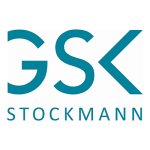Having dropped considerably in 2020 due to Brexit and the COVID crisis, domestic and cross-border M&A involving Luxembourg picked up speed in 2021 due to the decreased impact of the pandemic. There has been a rebound of shareholder activism in the market, which has encouraged deals in various sectors, such as cargo transportation and logistics, automotive and engineering, as well as technology, media and telecommunications (TMT).
However, since the beginning of 2022, dealmakers, especially in the real estate sector, have been facing a challenging environment for M&A. The Ukraine crisis, soaring inflation, rising interests and a looming recession have put an end to the buying spree that followed the lifting of COVID lockdowns. The declining number reflects a drop-off in the general level of business confidence, as well as a decrease in the number of mergers involving SPACs.
Due to the legal and political stability of Luxembourg’s regulatory, financial and legislative framework, and the growing fund industry and financial sector, the Luxembourg market continues to generate further M&A transactions aimed at European-based targets.
Public or private
There is a mix of private and public M&A transactions, while the key sectors for M&A activity remain diverse. The deal volume for Luxembourg itself is rather small and mostly in the financial sector, however the number of M&A deals steered through Luxembourg vehicles into other markets remains very high.
M&A targets in both the private and public sectors are often not located in Luxembourg itself but in other jurisdictions. Due to the stable legal and business environment in Luxembourg, M&A transactions with European targets originated from a Luxembourg-based structure (investment fund or other) continue to be common.
Deal highlights
In September 2022, BGL BNP Paribas SA, a Luxembourg-based commercial bank, together with another investor, acquired a majority stake in Wako Group, a Luxembourg-Belgian manufacturer of premium doors and windows.
In November 2022, Atlas Investissement, a France-based investment vehicle focusing on the telecoms sector, acquired an approximately 2.5% interest in Vodafone Group PLC and an approximately 7% interest in Millicom International Cellular SA, the Luxembourg-based provider of mobile and fixed telephony, cable, and broadband services.
In June 2022, Foyer Group, a Luxembourg-based insurance and asset management company, agreed to acquire from Allianz Group its insurance portfolios managed by Allianz Insurance Luxembourg and Allianz Life Luxembourg. Through the transfer of Allianz’s Luxembourg portfolios, Foyer Group is strengthening its position as a leader in the local insurance market. The transaction is subject to approvals from certain authorities including the Commissariat aux Assurances, the Luxembourg insurance regulator.
Universal Investment Group (UIG), one of Europe’s leading fund services platforms and the largest AIFM in Luxembourg, acquired Luxembourg-based financial services provider European Fund Administration S.A. (EFA) in November 2022. This will strengthen UIG’s presence in Europe and the attractiveness of its products, especially for international asset managers who need an efficient platform for their assets.
Meanwhile Caceis, a European leading assets services company, has agreed to acquire the European asset servicing activities of RBC Investor Services, which is registered in Luxembourg and manages its operations for both Europe and the Asia-Pacific region. By acquiring RBC Investor Services, Caceis will benefit from an expanded range of services and a wider client base in the European market. The completion of the contemplated transaction will be subject to customary closing conditions, including regulatory and antitrust approvals, and is expected to take place by the end of the third quarter of 2023.
Deal trends
It is prudent for sellers to investigate the material adverse change clause (MAC) carefully, as there could still be a high possibility that the pandemic qualifies as a MAC and purchasers attempt to terminate the transaction on that basis. The due diligence procedure is also onerous since there is the need to deeply assess the financial situation of target companies due to the invisible impact of the pandemic.
Moreover, it is important for the parties, having negotiated the purchase price of the target company during the pre-pandemic period, to ensure that it is still considered fair for the value exchanged. Otherwise either party or both parties may attempt to renegotiate or terminate the deal.
Tying a portion of the purchase price to the performance of the target company after closing (earn-out provisions), might be a way to give purchasers a degree of security. An agreement on the allocation of risk on earn-outs may be a suitable compromise to save certain deals as well as to diminish the impact of COVID.
The investment funds industry continues to play a major role in the Luxembourg financial and legal market. As of December 31 2022, the total net assets of undertakings for collective investment, comprising undertakings for collective investment (UCIs), specialized investment funds and SICARs, amounted to €5,028.456 billion, compared to €5,859.485 billion as of December 31 2021. The volume of net assets decreased by 14.18% in the last 12 months, which is significant compared to the increase of 17.81% for the year 2021. Most of the UCI categories lost value during 2022, in contrast with the good performance of 2021. This was likely due to the Ukraine crisis, persistently high inflation, recession fears, rising interest rates and relatively hawkish communications from the Federal Reserve Board and the European Central Bank.
Luxembourg had seen an increase in SPAC transactions in 2021 and the beginning of 2022, though the listing mostly occurred at non-Luxembourg stock-exchanges. However, later in 2022 such SPACs were rarely used as vehicles to convey mergers or listings, which might also be due to the macroeconomic situation. The negative sentiment surrounding SPACs has also led to a decline in the number of de-SPACs, which in turn has contributed to the lower number of large mergers in 2022.
Legislation
The main legislation is the law of August 10 1915 on commercial companies, known as the Corporate Law. The Corporate Law provides for all kinds of corporate entities and corporate instruments to create tailor-made structures usable for M&A transactions.
Another key piece of legislation is the law of May 19 2006 implementing Directive 2004/25/EU on takeover bids, known as the Takeover Law, which covers squeeze-out and sell-out rights and contributes to M&A transactions of Luxembourg-based target companies. A natural or legal person acquiring, alone or with others, control over a company by holding 33.3% of the voting rights is required to make a mandatory takeover bid to all the holders of shares in the Luxembourg company. The Takeover Law states that if the target company's securities are not admitted to trading in the EU member state where it resides, the competent authority to supervise the bid will be from the member state responsible for the regulated market on which the company’s securities are admitted to trading.
The law of July 21 2012 governing the mandatory squeeze-out and sell-out of securities of companies admitted or previously admitted to trading on a regulated market, or having been offered to the public, known as the Squeeze-Out and Sell-Out Law, also plays a role. The Squeeze-Out and Sell-Out Law applies to the following scenarios:
If all or part of a company’s securities are admitted to trading on a regulated market in one or more EU member states;
If all or part of a company’s securities are no longer traded, but were admitted to trading on a regulated market and the delisting became effective less than five years ago; or
If all or part of a company’s securities were the subject of a public offer which triggered the obligation to publish a prospectus in accordance with Directive 2003/71/EC of the European Parliament and of the Council of November 4 2003 on the prospectus to be published when securities are offered to the public or admitted to trading or, if there is no obligation, where the offer started in the previous five years.
The Luxembourg Squeeze-Out and Sell-Out Law does not apply during, and for a certain grace period after, a public takeover, which is or has been carried out pursuant to the Takeover Law.
Also, numerous treaties on the avoidance of double taxation allow Luxembourg to support the worldwide M&A activities of Luxembourg PE funds and M&A parties.
Regulation
On March 21 2020, the Luxembourg parliament passed a law which implemented Council Directive (EU) 2018/822, regarding the mandatory automatic exchange of information for taxation of reportable cross-border arrangements (DAC6). DAC6 tightens the reins on M&A deals across the globe, demanding greater transparency.
Closing deliverables and the purchase price mechanism need to reflect this change and be amended and structured to accommodate possible risks. These include fines that may be imposed due to non-compliance with DAC6 reporting regulations.
On November 24 2022, the Luxembourg parliament passed the law of November 30 2022 on competition, known as the New Competition Law, which entered into force on January 1 2023. It aims to overhaul the current competition legislation and transpose into Luxembourg law Directive (EU) 2019/1 to empower the competition authorities of EU member states to be more effective enforcers. The New Competition Law transformed the independent administrative competition authority formerly known as the Competition Council into a public institution, called the National Competition Authority (NCA), which allows the Luxembourg competition authority to act more independently.
It also introduced additional procedural guarantees and clarifications on the relevant procedures, which will help strengthen legal certainty in the activities of the NCA. This especially concerns its investigative powers, and the options to close proceedings. The New Competition Law is not supposed to affect or pre-empt the ongoing legislative efforts to introduce merger control in Luxembourg, but can be viewed as a big step for future competition law developments. This is because the new design and extended competences of the NCA will be a crucial element for its evolving enforcement regime.
ESG
Given the importance of the investment fund industry in M&A transactions, EU Regulation 2019/2088 on sustainability-related disclosure in the financial services sector and Regulation 2020/852 on the establishment of a framework to facilitate sustainable investment may indirectly affect the M&A market.
Furthermore, two EU Directive proposals regarding corporate sustainability were also intensively discussed in 2022. The first one is the proposal for a Corporate Sustainability Reporting Directive (CSRD) which was adopted by the Council of the EU on November 28 2022. The CSRD lays down the groundwork for sustainability reporting standards at a global level, the requirements of which will apply to all large companies as well as to listed SMEs. Non-EU companies with substantial activities in the EU will also be covered.
The other is the proposal for a Directive on Corporate Sustainability Due Diligence, which will soon be presented to the EU Parliament and the Council of the EU for approval. The Directive on Corporate Sustainability Due Diligence aims to introduce a sustainability due diligence duty on large EU companies and non-EU companies with significant EU activities to address adverse human rights and environmental impacts of their own operations, and of their subsidiaries and value chains.
As one can imagine, the implementation of effective ESG strategies by target companies will influence their attractiveness. More and more ESG-related standards will have to be respected by the target companies, which will in turn increase the acquisition costs for the buyers, as they will have to enhance ESG due diligence procedures. It is now common that an ESG advisor is involved in the early stage of a M&A transaction to provide consultations on ESG-related topics for both parties.
It will also increase the operation costs for buyers after the target companies are acquired, as the new ESG rules will require the companies to ensure that their business strategy is ESG compatible. It will also require the directors of the companies to commit to integrating sustainability matters into their decisions in the short, medium and long term. As a result, a trend where ESG factors will play an important part in acquisition decision-making is expected.
Rules and regulations
On September 15 2021, Luxembourg introduced a screening mechanism by law with a mandatory notification and pre-approval requirement for certain foreign direct investments made by non-European investors. The law affects foreign investors that wish to invest in a Luxembourg entity conducting activities regarded as critical in various sectors (such as energy, health, defense, finance, telecoms, data and media). The law will have an impact on M&A transactions by influencing which sectors foreign investors focus on. It is noted that the screening mechanism would not apply to holding companies controlling an operational activity that takes place abroad, nor to UCITS retail fund holdings. Private equity fund investments potentially fall under the law, but funds based outside the EU rarely acquire targets in Luxembourg.
On July 27 2022, a bill was submitted to the Luxembourg parliament to implement Directive (EU) 2019/2121 as regards cross-border conversions, mergers and divisions. At national level it introduces two new forms of merger by absorption:
Upstream merger (where a company transfers by way of dissolution without liquidating the entirety of its assets and liabilities to its parent company); and
Side-stream merger (where a company transfers the entirety of its assets and liabilities to an existing company without the issue of new shares, under the condition that one person is the direct or indirect shareholder of all shares in the merging companies).
At EU level, cross-border conversions, and divisions by incorporation of new companies between EU member states will be possible. In addition, shareholders, creditors and employees will be granted additional rights in cross-border conversions, mergers and divisions between EU member states, including a right for shareholders to opt out of the relevant transaction.
As for tax-related rules, on June 13 2022, a bill was submitted to the Luxembourg parliament to implement the sixth amendment to Directive 2011/16/EU on administrative cooperation in the field of taxation (DAC7). DAC7 contains several sections that complement and extend the existing domestic rules on tax transparency and exchange of information. In addition, on December 8 2022, the EU Commission issued a proposal to update Directive 2011/16/EU on administrative cooperation in the field of taxation (DAC8). The amendment creates new reporting obligations for all service providers or operators involved in providing crypto-asset services for EU resident customers. The proposal also includes an extension of the scope of exchange of information on tax rulings to cover advance cross-border rulings and advance pricing arrangements for high net worth individuals and a minimum financial penalty for non-compliance with certain reporting obligations.
Furthermore, on January 20 2022, the Luxembourg Ministry of Economy launched a public consultation on the possible implementation of a merger control regime in Luxembourg. The purpose of such a regime would be to give the NCA the power and tools to carry out an ex ante control of certain M&A which may have a restrictive effect on competition in Luxembourg. It would also allow for early detection of such threats to competition, potentially limiting damage to consumers and undertakings alike.
On 13 July 2022, the Ministry of Economy published an interim report on the preparatory work on the introduction of such a regime to which economic players and public authorities have participated. On the basis of the interim report, the Luxembourg government will prepare a bill of law which is expected to be filed with parliament in the Spring of 2023.
Technology
Technology makes negotiations and deal closings easier for parties who are not residing in the same country. Some law firms use AI software to conduct legal due diligence. AI software enables rapid identification and extractions of key provisions by reviewing thousands of contracts and other documents quickly. However, advanced technology is not a substitute for human beings, rather a tool that allows us to get deals done more quickly and efficiently, and often at a lower cost.
Public or private
Key factors for public M&A involve complying with the provisions of the Takeover Law. This includes complying with the requirement to notify supervising authorities and with reporting requirements under the law, as well as with other elements related to the activity. In particular, parties to an M&A transaction need to assess how the managing bodies of the takeover target are to be approached and which governmental authorities need to be notified.
In Luxembourg, break fees are regularly negotiated at the beginning of a transaction, which is determined by the parties based on the amount of the damage relating to the non-performance of the obligation in accordance with the Luxembourg Civil Code. Nevertheless, the judge may adjust the agreed break fees if they are manifestly excessive or derisory. This is common in Luxembourg and it is also accepted by Luxembourg service providers that a break fee can include a certain discount, given the economic downside of an unsuccessful bid.
The concepts mentioned above also apply to Luxembourg private M&A transactions. The locked-box mechanism might span a minimum period of six months to two years. Completion accounts need to be presented and they may be audited. Earn-out provisions to give purchasers more security are commonly seen due to the pandemic and/or the economic crises of recent months, for the purpose of risk allocation as well as diminishing the adverse impact from the market. A growing number of private M&A transactions can be seen in financial sector entities such as alternative investment fund managers and banks.
In private takeovers, deal conditions are subject to specific transactions. All conditions, however, must comply with the applicable law and should be identified duly in advance of starting the deal. The Corporate Law provisions apply, as do the constitutive documents of the privately-owned target entity. A shareholders’ agreement will most likely also be put in place and this will contain provisions pertaining to drag-along, tag-along and pre-emptive rights of shareholders.
Parties to M&A transactions are inclined to have the share purchase agreement governed by and construed in accordance with the law of the country where the target entity is located. Share purchase agreements involving Luxembourg-based target entities are typically drafted under and made subject to Luxembourg law.
Looking ahead
Given the political tensions between Russia and Ukraine, high inflation, and recession fears, there might be a continuing slowdown of M&A activities in and through Luxembourg. Deals decline as sellers hold back and buyers lose conviction. As uncertainty impacts both the business of buyers and targets, it becomes harder to make decisions about deals during turbulent times.
On the other hand, COVID should not be a major obstacle to M&A activities anymore provided no more dangerous virus variants appear. Climate and ESG, although posing transactional risks, will become an opportunity for M&A deals. The companies and investors that are facing potential ESG risks for the moment will have to seek alignment with counterparties to solve ESG integration issues by acquiring or merging with ESG-adjacent assets and activities.
Investment in fintech and in early-stage technology, such as space companies in Luxembourg, is also likely to increase. However, M&A transactions launched from Luxembourg vehicles into other EU jurisdictions will remain more important and voluminous than M&A transactions within the Luxembourg market itself.



